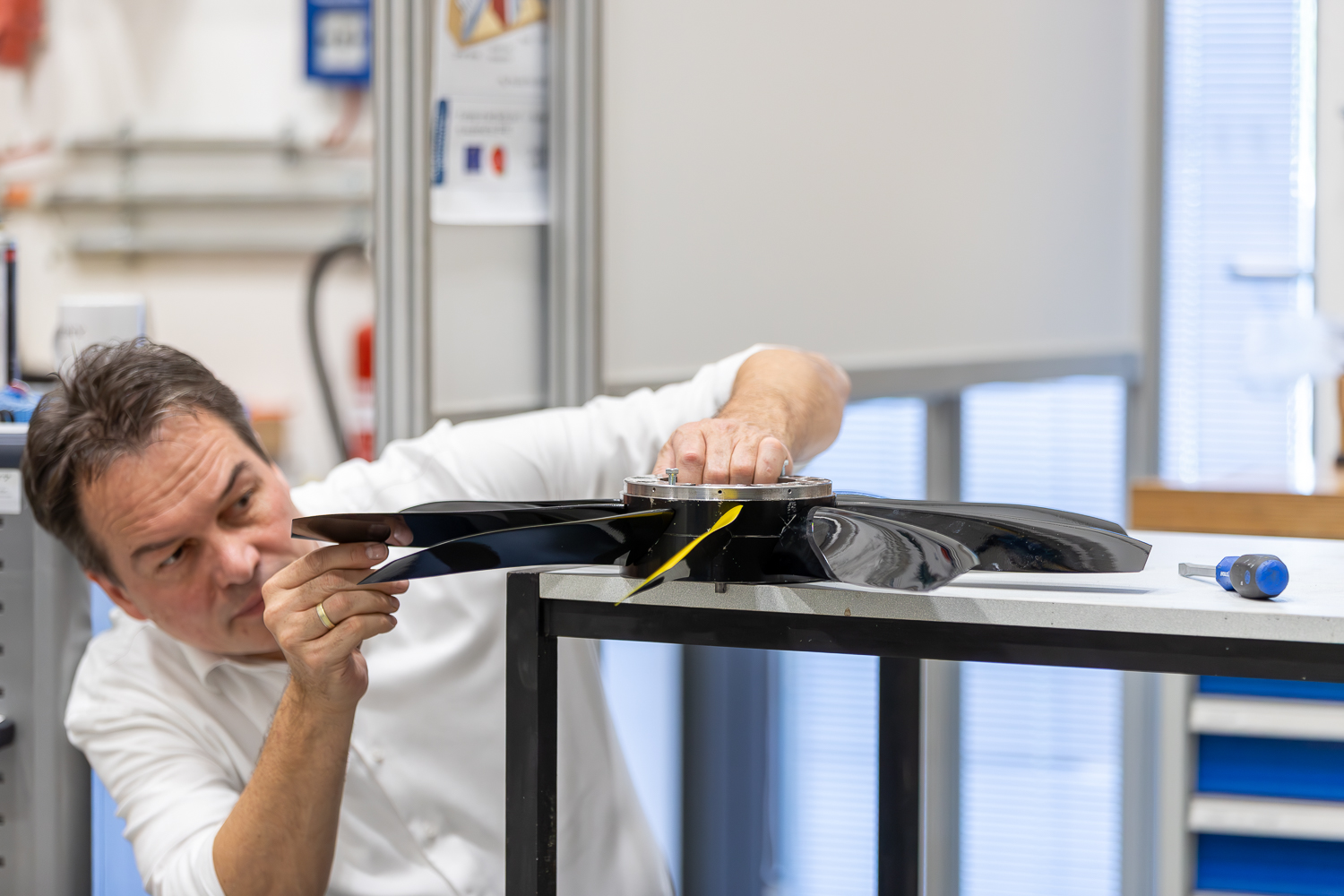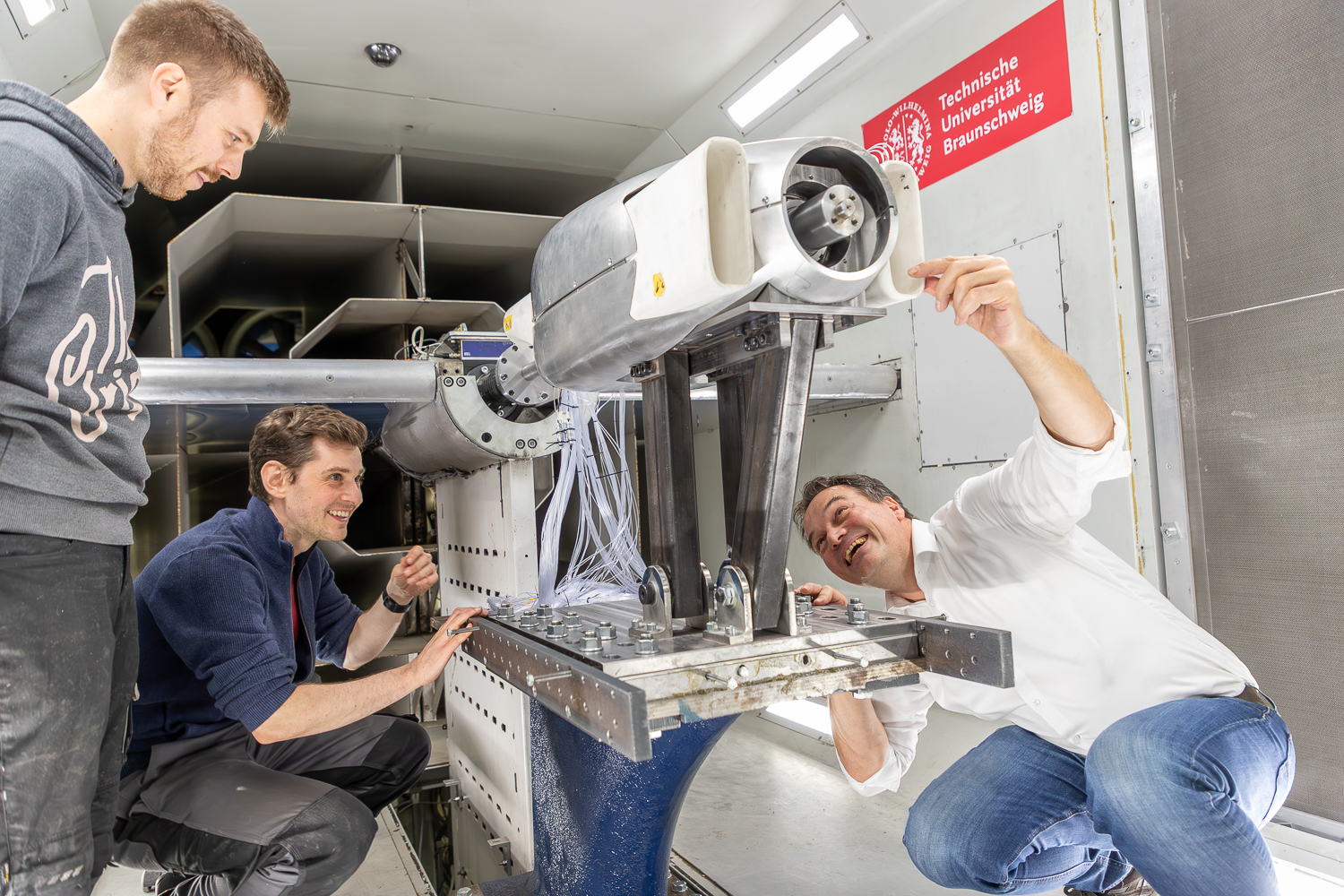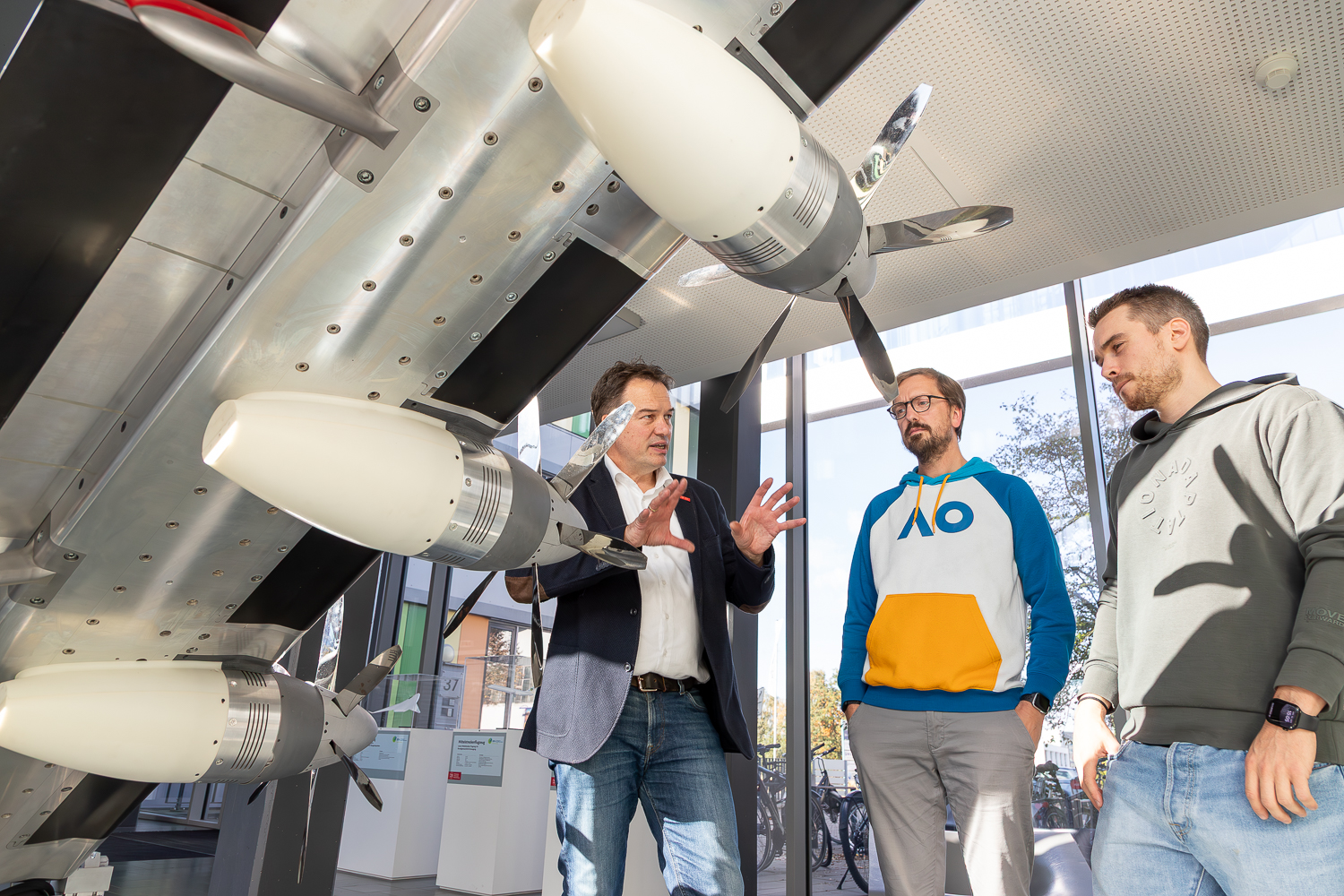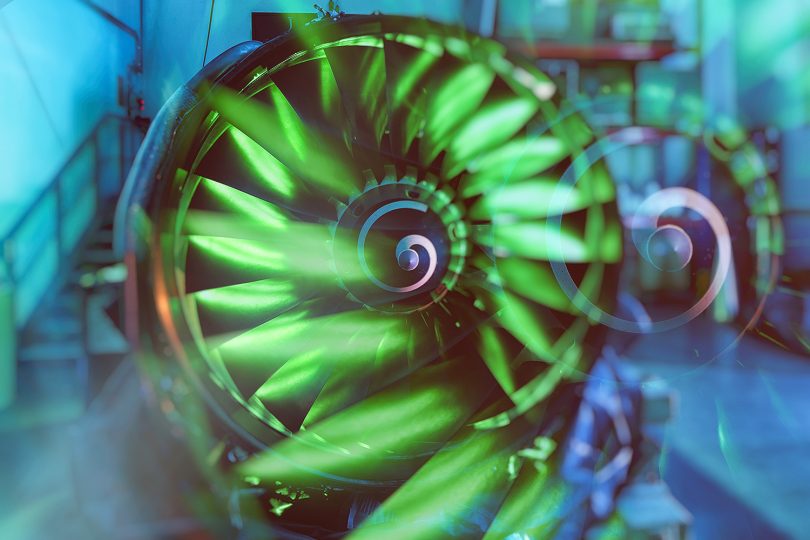“Doing things that no one has done before” Innovators & Explorers: Professor Jens Friedrichs is shaping the future of aviation
How can flying become more sustainable while remaining accessible to society? This is the question being addressed by Professor Jens Friedrichs, head of the Institute of Aeroengines and Fluid Machinery at TU Braunschweig. In the ‘Sustainable and Energy-Efficient Aviation’ (SE²A) cluster of excellence, he and his team are developing new solutions for tomorrow’s aviation. These include test benches that are unique in Europe, interdisciplinary research approaches and close cooperation with international partners.

Professor Jens Friedrichs. Photo credits: Kristina Rottig/TU Braunschweig
It was only a brief moment, but one that has remained in his memory to this day: his first flight in an Airbus A380, sitting on the upper deck. Fast asleep, he was awakened by a clinking sound. Not the roar of the engines, not the rush of air, but the clinking of glasses in the on-board bar. “I had never heard that before on a flight,” recalls Friedrichs. The background noise had never allowed it before – now it was possible to hear even the delicate clinking of glass in an aeroplane: “It may sound trivial because it had no direct influence on my research. But that moment once again underlined for me what technical innovation can achieve and reinforced my already complete fascination with flying.”
Today, he heads the institute that he himself rebuilt and works in the SE²A Cluster of Excellence to make such moments possible in the future – this time with the goal of making flying not only comfortable, but also climate-friendly.

Propulsion Test Facility – a test environment for investigating future engines. Photo credits: Kristina Rottig/TU Braunschweig
Cutting-edge research means: perseverance
For Friedrichs, cutting-edge research means more than technical excellence. The key is to think across disciplines and develop new solutions. “Battery technology, fuel cells, power electronics, life cycle assessment: all these fields first had to be familiarised with the special requirements of aviation. This is the only way to create viable solutions.”
For him, however, cutting-edge research also requires perseverance. “It’s about doing things that no one has done before. That also means that it often doesn’t work the first time.” For him, setbacks are not a reason to give up, but an incentive.
One example is the Propulsion Test Facility, a test bench for aircraft engines that is unique in Europe, located at the Institute of Aircraft Propulsion and Fluid Machinery at Braunschweig Research Airport. It took more than ten years to build, with many ups and downs. Today, international giants such as Airbus and GE are interested in the facility. “That makes me proud, even if it was a marathon.”
A new way of flying
Friedrichs is convinced that flying will continue to exist in the future. “The idea of simply not flying anymore is completely unrealistic. Mobility is a basic global social requirement.” But aviation will change. In the future, a flight to New York may take eight hours instead of six because this will significantly reduce emissions. Departure times may be shifted to take advantage of more climate-friendly routes. However, it is also important that sustainable flying remains not only ecologically sensible, but also affordable.
And time and again, his research is not only about technology, but also about people. “Imagine sitting in a blended wing body. The fuselage merges organically into the wings, making it very efficient. But if you’re sitting in the middle, you’re 15 seats away from the nearest window on either side. Will travellers feel comfortable with that?” For him, one thing is clear: “Technology alone is not enough. Ultimately, it must also suit people, offer them added value and, ideally, fascinate them.”

Professor Jens Friedrichs discusses lower-emission aircraft engines with colleagues. Photo credits: Kristina Rottig/TU Braunschweig
A strong research ecosystem
Braunschweig offers ideal conditions for this type of cutting-edge research. “On the one hand, because interdisciplinary collaboration is a matter of course here at the university,” says Friedrichs. “In addition, we have excellent links with the German Aerospace Centre, Fraunhofer IST, the Physikalisch-Technische Bundesanstalt and Leibniz University Hannover. And we have the airport right on our doorstep. All of this enables a chain from the initial idea to the final flight test that is almost unique in the world.” The only comparable facilities are in Toulouse and at NASA.
He advises his students not to focus too much on labour market trends. “Fifteen years ago, hardly anyone would have thought that chemistry or thermal management would become essential topics for aviation. Today, they are key topics.”
The key is to follow your passion and be patient. Can anyone really become a top researcher? “Statistically speaking, of course not,” he laughs. “But everyone can find a field in which they remain curious and dig deeper and deeper. That’s the key.”
Text: Hannah Kreß

